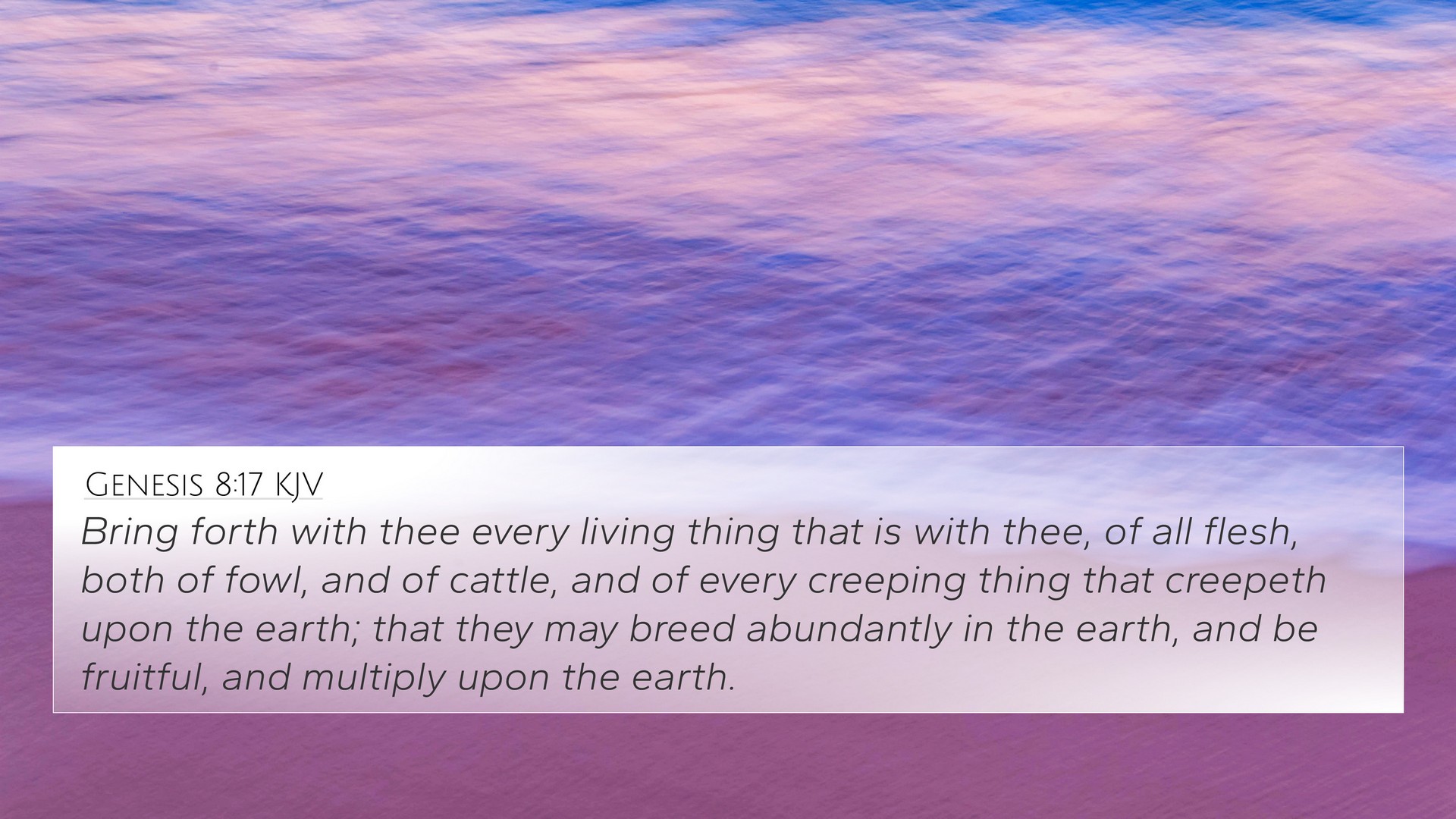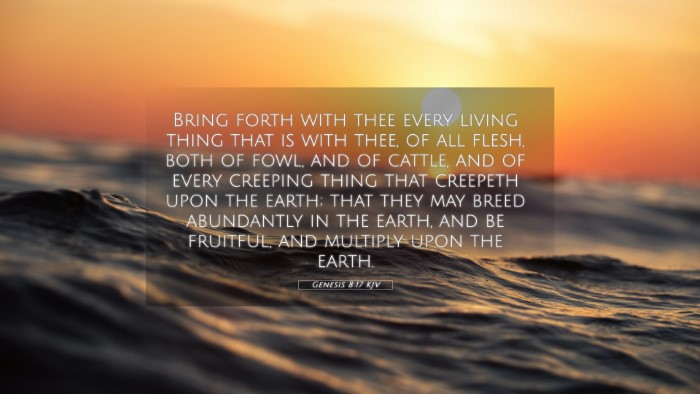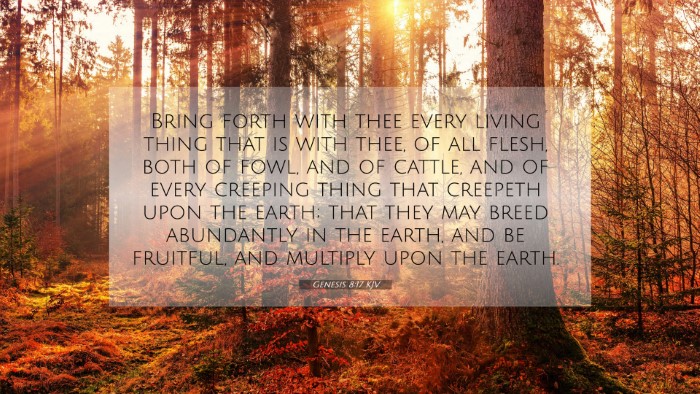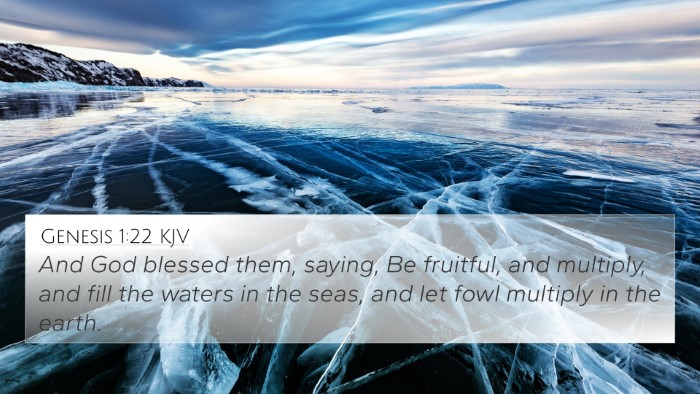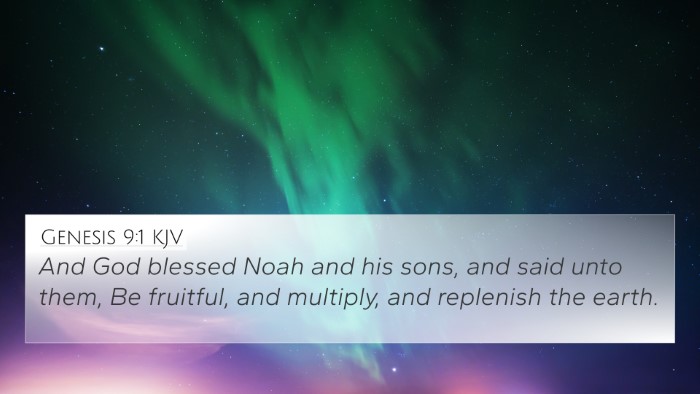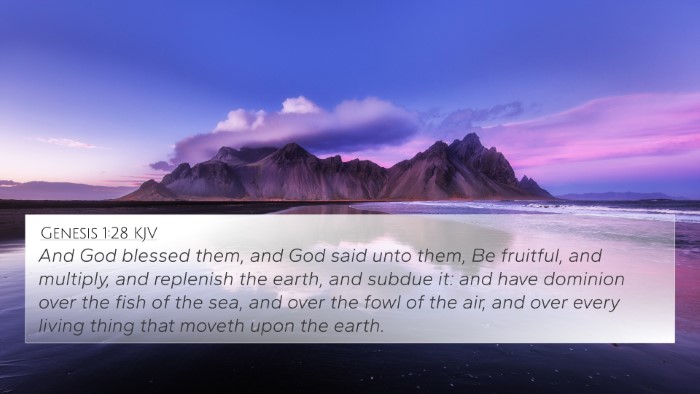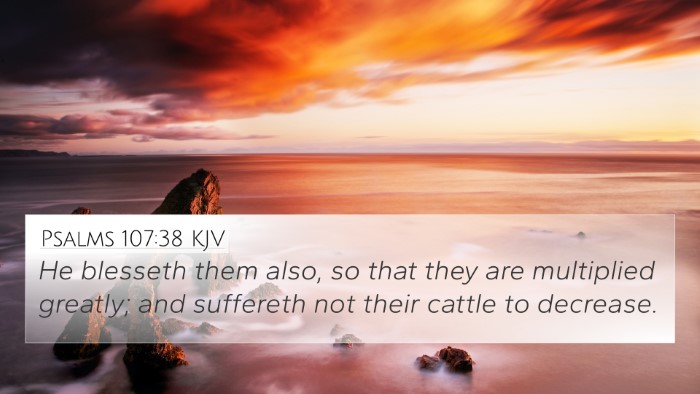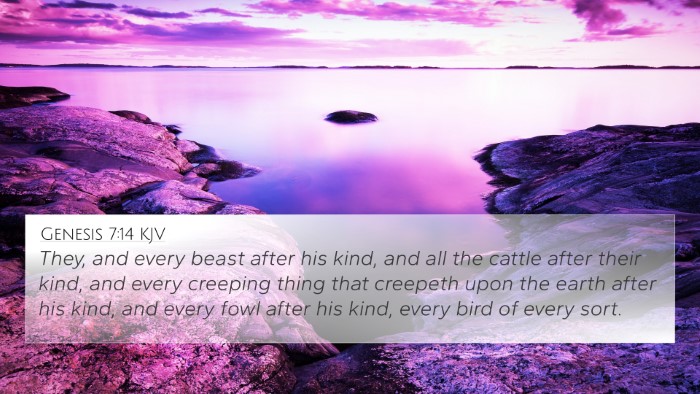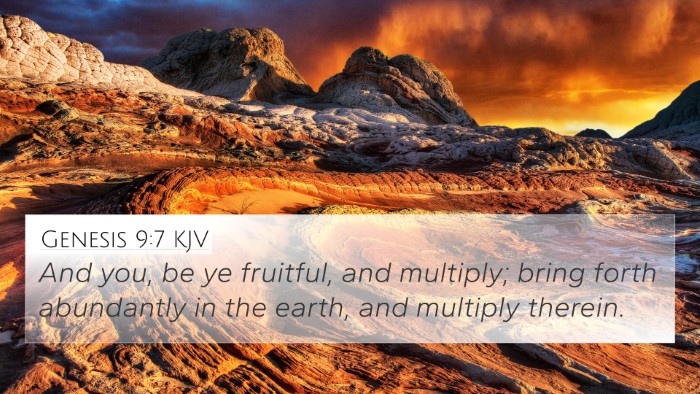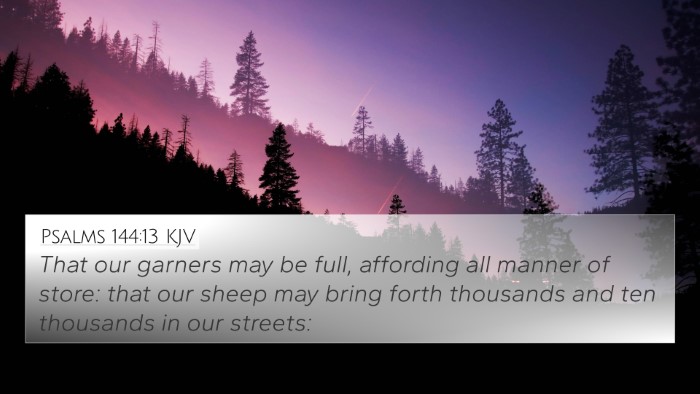Understanding Genesis 8:17
Genesis 8:17 states: "Bring out with you every living thing of all flesh that is with you, of birds and of animals and of every creeping thing that creeps on the earth, that they may breed abundantly on the earth, and be fruitful and multiply on the earth." This verse occurs at a pivotal moment in the narrative of Noah's Ark, following the great Flood. It not only signifies the end of a divine judgment but also heralds new beginnings for creation.
Summarized Meaning
In this verse, God commands Noah to release the creatures from the Ark, allowing them to repopulate the earth. The command emphasizes God's intention to restore the created order and maintain life on earth. It signifies hope and renewal after destruction, showcasing God's mercy and faithfulness to His creation.
Insights from Public Domain Commentaries
Matthew Henry's Commentary
Henry focuses on the importance of the command as a restoration of order in creation. He notes that the act of bringing forth living creatures underscores God's providence and the principle of life. Henry also highlights the responsibility of humanity towards creation, suggesting that man is to be a steward of the creatures God has made.
Albert Barnes' Commentary
Barnes interprets the verse as an expression of God’s will for reproduction and the spread of life. He points out that this directive not only concerns the physical breeding of animals and humanity but also symbolizes spiritual rebirth and the propagation of godliness. Barnes emphasizes the harmony in God’s creation and the continuity of life post-Flood.
Adam Clarke's Commentary
Clarke discusses the broader implications of this verse regarding God's covenant with Noah, emphasizing the phrase "be fruitful and multiply" as a renewal of the command given to Adam and Eve. He draws parallels to Genesis 1:28, noting that God's intention has always been for life to flourish and for humanity to fill the earth with righteous living.
Connections with Other Bible Verses
Genesis 8:17 can be cross-referenced with several important verses that enrich understanding:
- Genesis 1:28 - God's original command to Adam and Eve to be fruitful and multiply.
- Genesis 9:1 - God further commands Noah and his sons to be fruitful and multiply, reinforcing the theme of life after the Flood.
- Isaiah 45:18 - Highlights God's creation purpose, affirming that the earth was made to be inhabited.
- Acts 17:26 - Affirms God's sovereignty over creation and His plan for humanity's existence and spread across the earth.
- Matthew 28:19-20 - The Great Commission speaks to the spiritual multiplication of believers, echoing the physical mandate in Genesis.
- Genesis 6:18 - God's promise to Noah, mentioning the preservation of life as part of His covenant.
- Romans 8:19-21 - Anticipation of the creation being liberated from decay, showing continuity in God's plan for life.
Thematic Connections and Interpretation
Genesis 8:17 serves as a profound illustration of the themes of restoration, renewal, and divine grace as seen throughout the Scriptures. It links to broader Biblical themes of redemption and new beginnings.
The phrase "be fruitful and multiply" resonates deeply in God’s narrative—reflecting human potential and divine purpose. The cross-references illustrate the consistent message across the Old and New Testaments regarding God's sustaining power and desire for life.
Inter-Biblical Dialogue
The connections between Genesis 8:17 and other scriptures illustrate a cohesive Biblical message of hope and continuity in the divine narrative. This verse acts as a bridge that connects creation theology in Genesis with the New Testament's emphasis on spiritual life and growth.
Conclusion
In conclusion, Genesis 8:17 is not merely a directive for Noah but is rich in theological implications. The insights from public domain commentaries combined with cross-references reflect the importance of understanding scripture in a holistic and interconnected manner. This approach offers a deeper appreciation for the recurring themes of God’s fidelity, the importance of stewardship, and the call to live out the divine intention for flourishing life.
For those exploring the connections between Bible verses, utilizing tools for Bible cross-referencing can enhance your study and understanding of these profound themes. Whether using a Bible concordance or engaging in cross-reference Bible study techniques, aligning these verses reveals a comprehensive framework for interpreting God's Word.
